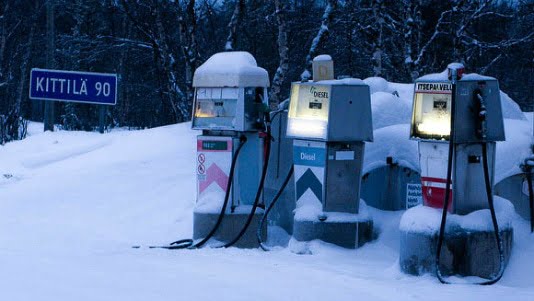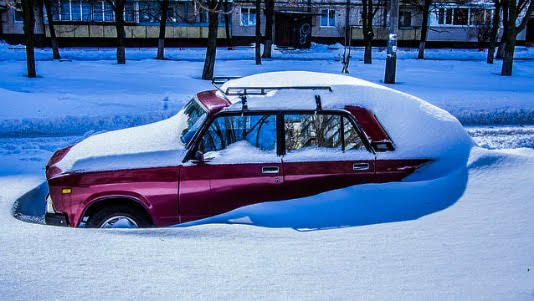Not only does cold wintry weather put undue strain on components beneath the bonnet, it also creates potentially dangerous driving conditions.
And, as if that wasn’t bad enough, studies show that cold weather can have an adverse effect on fuel economy — meaning more of your hard earned cash down the drain during the long, cold winter months.
But, what causes a drop in fuel efficiency during the winter, and is there anything motorists can do to prevent it from happening? We’re here to find out.
How Cold Temperatures Affect Your Fuel
According to government fuel tests, fuel efficiency is around 10% lower at -5°C than it is at 20°C.
What’s more, for motorists driving under 4 miles, fuel economy can decrease by as much 20% when temperatures drop below 0°C — so what’s going on?
Given the freezing point of petrol is a chilly -60°C, it’s virtually impossible for a petrol tank to freeze up during even the harshest British winter.
Diesel on the other hand has a much higher freeze point, and is prone to gelling in cold weather conditions. To combat this, fuel companies release a summer and winter diesel blend, which can resist temperatures of -5°C and -15°C respectively.
So, given that neither fuel is massively impacted by cold weather, it’s clear that the fuel economy dilemma doesn’t rest with the liquid itself — but with the effect that the cold has on the mechanics of the car.

You see, cold weather can affect all sorts of components on your car, leading to a notable drop in fuel efficiency.
Here, we list some of the effects cold weather can have on your car and its fuel economy.
- On cold days, it takes much longer for your engine to reach its optimum operating temperature. This is a particularly big problem for short trips, as the car will spend most of it working at a less-than-optimal temperature, subsequently leading to poor fuel economy.
- Engine oil thickens in cold conditions. This can lead to friction between moving parts in the engine and transmission system, meaning your car will burn fuel unnecessarily.
- Electrical components, such as fans, defrosters, wipers and heated seats, put additional strain on the battery. This in turn makes it more difficult for the alternator to keep the battery charged — leading to a drop in fuel efficiency.
- On freezing cold mornings, it’s often necessary to warm up your car to defrost and demist the windscreen. Idling like this has a massive impact on fuel economy, with your car achieving zero MPG for the duration.
- Cold air is thicker and denser than warm air, increasing the aerodynamic drag on your car. This means the engine has to work harder, particularly at motorway speeds.
- Tire pressures decrease slightly in very cold temperatures, increasing the car’s rolling resistance.
How to Improve Fuel Economy in Cold Conditions
Now that we’ve got to the bottom of poor winter fuel economy, it’s time to consider what can be done about it.
Here, we provide several simple tips to help you improve the MPG of your car on cold wintry days.

- If you’ve got a garage, be sure to park your car in it overnight. This will keep its start-up temperature steady and mild, lessening the strain placed on the battery and ensuring engine oil remains fluid.
- On cold mornings, don’t leave the car idling for too long while it warms up. Instead, use an ice scraper and de-icer to quickly remove frost from the windscreen and be on your way.
- Check your tyre pressure regularly in the winter, and make sure they’re always at the recommended PSI.
- Use high-quality engine oil that’s proven to work in extreme low temperatures. Your car’s manual should include details of recommended oil for cold weather driving.
- Combine quick trips so that your car’s engine has time to warm up and start burning fuel more efficiently.
- Don’t use electrical components such as demisters and seat warmers for longer than necessary. This will decrease the load on the battery and help your fuel economy.
Of course, the best way to improve your fuel economy is to add a shot of Redex fuel additives to your engine each time you top up the tank. Our products are developed to help your engine work at its optimum, no matter what winter throws your way.
Image credits: Ian, Sergey Galyonkin, Henri Bergius
